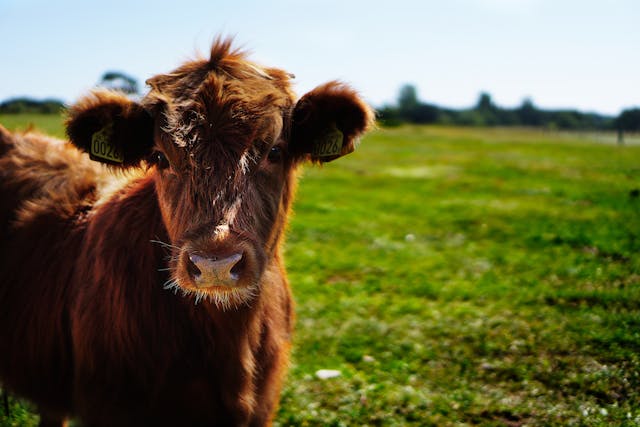
November 13, 2024
Calf Pheumonia – Autumn 2024
It’s that time of year again for the farmers of Lecale - the time to start preparing your herds for housing during the winter months. As covered in previous issues, a big threat to the health of cattle at housing is calf pneumonia. We have seen a lot of pneumonia in the past weeks even in cattle grasinging in the fields. We suspect that the culprit in this case is lungworm, and we will cover that disease in another article. For this article I would like to discuss the spread of viral and bacterial pneumonia as a result of close contact of animals at housing.
Calf pneumonia, also known as bovine respiratory disease (BRD), is a prevalent and potentially devastating condition that can affect young cattle, especially in their first few months of life. This illness not only impacts the health and growth of the calves but can also lead to significant economic losses. At Downe Vet Clinic, we advocate for a proactive, three-pronged approach to prevent calf pneumonia: maintaining excellent hygiene, providing balanced nutrition, and implementing a strategic vaccination program.
Understanding Calf Pneumonia
Calf pneumonia is caused by a combination of viral and bacterial pathogens that exploit stressors such as poor ventilation, sudden changes in weather, or inadequate nutrition. These factors weaken a calf's immune system, making it more susceptible to respiratory infections. Early and consistent preventive measures are crucial in reducing the incidence and severity of this disease.
The Importance of Hygiene: Good hygiene is fundamental in preventing calf pneumonia. By maintaining a clean environment, you reduce the number of pathogens that calves are exposed to, thereby lowering the risk of infection.
Clean and Dry Housing: Ensure that calf pens are regularly cleaned, dry, and well-bedded. Wet, dirty bedding can harbour harmful bacteria and viruses that lead to respiratory problems. Regularly removing soiled bedding and replacing it with fresh material is essential.
Proper Ventilation: Adequate ventilation is critical to minimising the buildup of ammonia and moisture in calf housing, both of which can irritate the respiratory tract and increase vulnerability to infections. Ensure good airflow without creating drafts that could chill young calves.
Routine Disinfection: Regularly disinfect feeding equipment, water troughs, and housing areas to reduce the pathogen load in the environment. Use effective disinfectants and adhere to recommended protocols to ensure thorough cleaning.
Colostrum Management: Providing high-quality colostrum within the first few hours of life is vital for boosting calves' immunity. Proper handling and feeding techniques are necessary to prevent contamination and ensure that calves receive the full benefits of colostrum.

